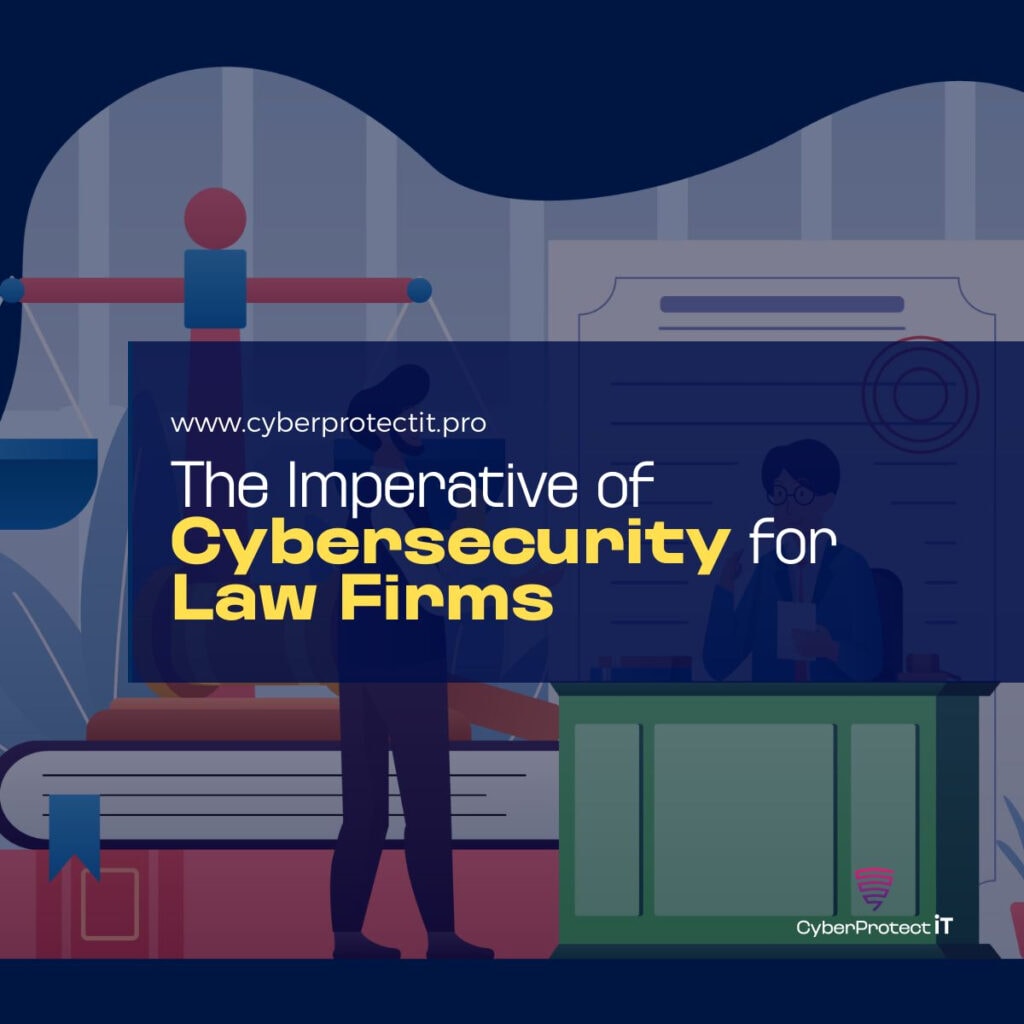Cybersecurity for Law Firms: What You Should Know
Law firms are repositories of valuable information, making them attractive targets for cybercriminals. The increasing sophistication of cyber-attacks, coupled with the sensitive nature of the data law firms handle, underscores the importance of implementing robust cybersecurity measures.
This article delves into why cybersecurity should be a top priority for law firms, their potential threats, and how they can bolster their defenses.

Why Cybersecurity is Essential for Law Firms
In the digital age, cybersecurity is no longer a luxury but a necessity for law firms. Their operations involve handling confidential data ranging from personally identifiable information (PII) to intellectual property (IP). Any compromise of this data could have severe repercussions, both legally and in terms of client trust and the firm’s reputation.
The Growing Threat Landscape
The threat landscape is continually evolving, with cybercriminals becoming increasingly sophisticated. They use a variety of tactics to breach a firm’s defenses, from phishing attacks to ransomware. Additionally, the proliferation of cybercrime-as-a-service on the dark web has lowered the barrier to entry for potential hackers, increasing the risk even further.
Legal Obligations and Ethical Duties
Law firms have a legal obligation to protect the information they handle.
In many jurisdictions, data protection laws like the General Data Protection Regulation (GDPR) in the EU, enforce strict penalties for data breaches.
Ethical Duty
The Reputation Factor
Trust is the cornerstone of the attorney-client relationship. Clients entrust their lawyers with sensitive information, expecting it to be kept confidential. A data breach can severely damage a firm’s reputation, leading to client loss and potential lawsuits.
Cybersecurity Threats Law Firms Face
Law firms face a multitude of cybersecurity threats. Recognizing these threats is the first step toward mitigating them.
Credential Theft
One of the most common cybersecurity threats law firms face is credential theft. This usually entails tricking employees into divulging their login credentials through phishing emails. Once the attacker has these credentials, they can access sensitive client information.
Financial Redirection Attacks
Financial redirection attacks involve intercepting payment transactions between law firms and their clients. Attackers infiltrate a firm’s email system and send emails to clients asking them to redirect payments to a new bank account.
Email scams are varied and seriously threaten law firms as they may be challenging to recognize without the aid of an email security program.
Ransomware Attacks
Ransomware attacks involve deploying malicious software that encrypts a firm’s data, rendering it inaccessible. The attacker then demands a ransom in exchange for the decryption key.
In the Crosshairs
Insider Threats
Insider threats are often overlooked but can be just as damaging as external threats. These can range from employees inadvertently leaking information to disgruntled employees intentionally causing harm.
Implementing Robust Cybersecurity Measures
Given the significant risks, law firms must implement robust cybersecurity measures.
Conduct Regular Risk Assessments
Regular risk assessments can help law firms identify potential vulnerabilities and take preventive measures. These assessments should encompass all aspects of the firm’s IT infrastructure, including networks, systems, and data handling practices.
Develop a Comprehensive Cyber Security Policy
It is crucial to have a comprehensive cybersecurity policy in place. This policy should outline the firm’s approach to data protection, detailing the measures in place to prevent breaches and the steps to be taken in the event of a breach.
Incident Response Plan
An Incident Response Plan is crucial for law firm cybersecurity to effectively address any cyber incidents or security breaches that may occur. With the increasing threat of cyber-attacks and unauthorized access to sensitive client data, law firms need a comprehensive security incident response plan.
Data Security Guide
Law firms should have a dedicated security team trained in information security and awareness training to respond to any security incidents that may arise effectively.
Cyber Security Training for Staff
Employees play a critical role in a law firm’s cybersecurity posture. Regular cybersecurity awareness training can ensure they know the potential threats and how to recognize and respond to them.
Use of Cybersecurity Tools
Utilizing the right cybersecurity tools can significantly enhance a law firm’s defenses. These tools should include firewalls, AI-driven spam and phishing filters, malware detection software, data encryption, and multi-factor authentication solutions.
Cyber Liability Insurance
Cyber Liability Insurance is becoming increasingly important for law firms to protect against the risks of cyber-attacks and data breaches. In today’s digital age, law firms deal with vast amounts of personal data, and it is crucial to safeguard this information.
A law firm’s data security is always at risk of being compromised, so having cyber security insurance can help mitigate potential financial losses and reputational damage.
Investing in Peace of Mind
Regardless of size, every law firm must make reasonable efforts to prevent the inadvertent or unauthorized disclosure of sensitive information. With the rise of legal technology and practice management systems, the importance of cybersecurity for law firms cannot be overstated.
Staying ahead of potential cybersecurity risks and taking proactive steps to safeguard your firm’s data is essential.
Partnering with Cybersecurity Providers
Given cybersecurity threats’ complexity and ever-evolving nature, partnering with a cybersecurity provider can be a wise investment. These providers offer various services, from risk assessments and policy development to incident response and ongoing monitoring.
When was the last time you evaluated your law firm’s cybersecurity?
Book your Cybersecurity Strength Assessment call today.
Final Thoughts
In the digital age, cybersecurity is not an option but a necessity for law firms.
By understanding the risks they face and taking proactive steps to mitigate them, law firms can protect their clients’ data, preserve their reputation, and ensure their long-term success.
As the threat landscape evolves, so must law firms’ approach to cybersecurity. Staying informed about the latest threats and best practices can help law firms stay one step ahead of cybercriminals and ensure their clients’ data remains secure.


0 Comments